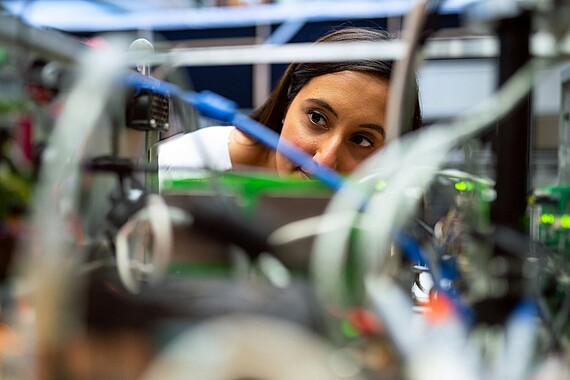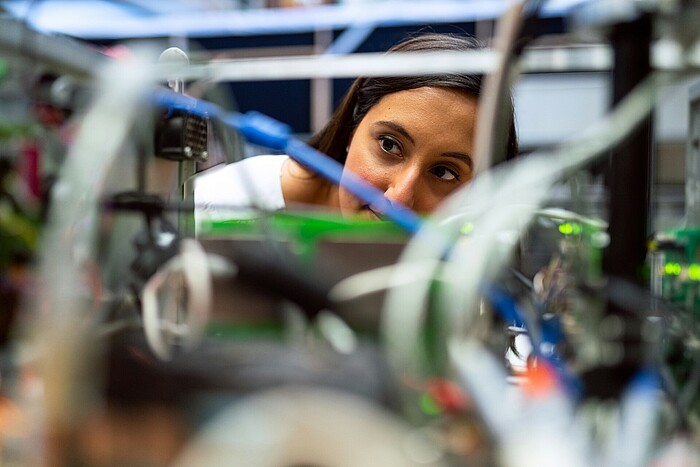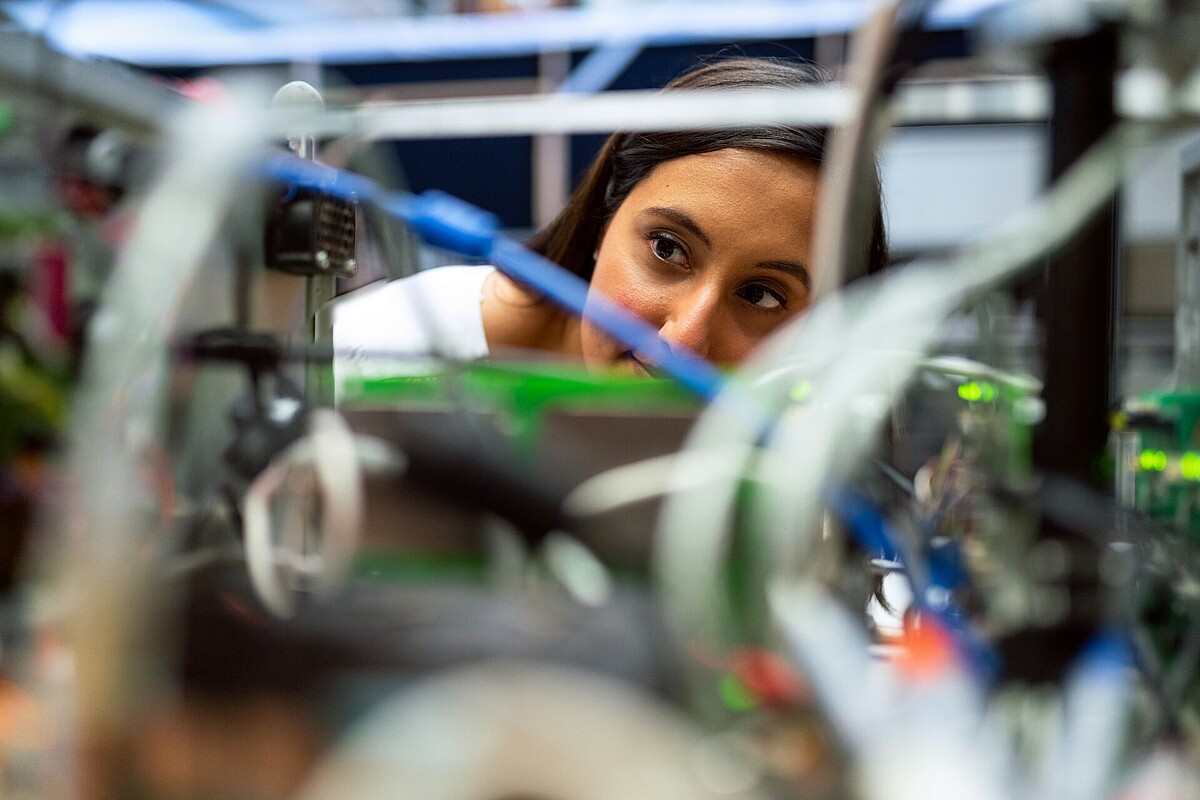Bachelor project
A special feature at the beginning of your degree programme is the practical Bachelor's project. You will work in a group on current research and practical problems from the faculty institutes. There are 13 projects to choose from, covering the three specialisations "Development and Design", "Energy and Process Engineering" and "Production Engineering".
For example, you will work on the development of an additional lens for a smartphone, the design of an electrically powered car or the production of individual components for a racing car. In this way, you will gain practical experience in your first semester, develop targeted solutions and implement them. You will also learn skills such as teamwork, project management and personal responsibility.
Contents of your study programme
In the first semesters, you will acquire basic knowledge in "Mathematics", "Measurement technology", "Computer science", "Mechanics", "Thermodynamics" and "Materials science". Your curriculum will include corresponding lectures and exercises. You will also have the opportunity to put your theoretical knowledge into practice in labs and practicals. Tutorials and exercises will help you to apply and deepen your knowledge.
In the further course of your studies, you can choose two specialisation modules, which will allow you to determine your first specialisation. Specialist excursions to industrial companies and the teaching of key skills round off your course. You also have the option of choosing a module from the entire range of courses at Leibniz University in the so-called "Studium Generale". You are not limited to engineering and can therefore think outside the box. In the final semester, you will complete your Bachelor's thesis, which concludes your degree programme.
What comes after your bachelor's degree?
Your Bachelor's degree will qualify you for a career in engineering. Depending on your specialisation, you can work in large or medium-sized national and international companies.
As an alternative to a career, taking up a Masters programme is also an option.






















